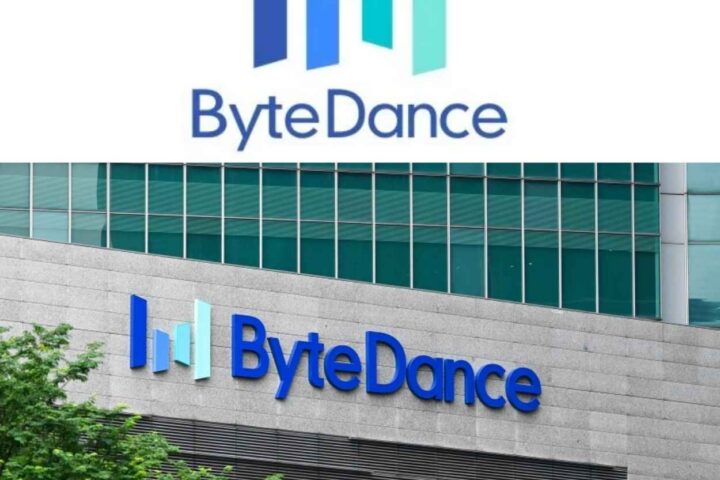These CRM Software Services have been recommended for small businesses that are just getting started, or very small businesses. There are a range of options below so you should be able to find the perfect fit for your business.
Zoho CRM

This product was recommended by Adem Selita from The Debt Relief Company
Zoho CRM is best for very small businesses because it is simple enough to start using with little to no experience and allows for streamlined SaaS integrations and customizable solutions as your business grows. The CRM allows businesses to make use of territory management (extremely useful for local businesses) and the customization features of the email marketing portion are outstanding. Moreover, as your business continues to grow it will allow you to optimize the CRM for your business needs and integrate with other add-ons in the future.
Maidily

This product was recommended by Mony Gueorguiev from Maidily
Maidily is a simple and effective cloud-based scheduling/CRM software made for cleaning businesses. Its made by cleaning business owners for cleaning business owners, packed with many features like automated customer reminders, beautiful job details layout pages, and a powerful dynamic calendar. All made so that you can work on your business, not in it.
Hubspot CRM

This product was recommended by Erico Franco from Agencia de Marketing Digital
Hubspot CRM has all basic features a CRM needs also it is Inbound Marketing oriented and the best: It is free forever! It also has a lot of integrations including mail (gmail, outlook,..), has a very nice nice API, If you contract the sales paid module you get a very nice sales automation feature called Sequences where you save your sales team tons of time magically automating your follow-up emails. Its really a great CRM for small business.
Airtable

This product was recommended by Rahul Mohanachandran from Kasera
Airtable is a perfect CRM tool for any small business because most of the traditional CRM tools can be too feature-heavy for a small business. What a small business needs is something that is a little bit more sophisticated than a spreadsheet and that is exactly what Airtable’s Lightweight CRM. It is a tool that will allow users to create a minimalistic CRM which can track Companies, Contact and all Activities from one place along with managing the sales pipeline.
An added benefit to Airtable is that the business can use it to manage other processes like marketing and social media posting schedules, project management and so on within the same account. Airtable is free to use with its essential features and $10/user/month thereafter, for most small businesses free version will very well satisfy their requirements.
Copper

This product was recommended by Bruce Hogan from SoftwarePundit
Copper is a popular CRM system used by over 10,000 SMBs. The platform comes with the necessary CRM features – sending emails, scheduling meetings, automating processes, workflow automation and reporting. Copper differentiates itself as the only CRM system that lives natively in G Suite. The millions of small companies that use G Suite will benefit from the ability to complete tasks such as updating contacts & creating events directly from Gmail. In addition, Copper is very affordable – its cheapest plan stores 30,000 contacts for only $19 per month.
InStream.io

This product was recommended by Kenny Trinh from Netbooknews
Small businesses are a little about marketing and selling, and all about building strong business relationships with customers and making sure they would be coming back. If you don’t want your client to lose interest in you and turn to your bigger competitors, you definitely need a platform that will work for your client’s needs.
You should then take a look at the InStream.io business relations management platform (BRM). It differs from any CRM available on the market in the fact that it is not designed exclusively with the aim of increasing sales, though the feature remains one of its crucial components, mainly to help you retain successful relations with your customer base.
Dubsado

This product was recommended by Paige Elizabeth Gribb from Paige Gribb Photography
I’m a photographer with a one-person team (me!) and I swear by Dubsado! It takes care of everything from contact forms to canned emails and questionnaires to contracts and invoicing, and it can do automated workflows and reminders. As a solopreneur that works both in Europe and in the US, I needed a service that could handle international clients and strict GPDR, and I found it in Dubsado. Plus, as a small business themselves, they’re always looking to improve things and have amazing customer service, which comes in very handy!
Nimble

This product was recommended by Karl Armstrong from EpicWin App
The right software can make or break your lead generation strategies, so I’ve done a lot of research on the best tool that can contribute to a business’s productivity. I have done a lot of research on different CRM software, and the best CRM software I recommend is Nimble. What makes Nimble a standout for me is it helps you better understand your prospects. Once you have prospects, access to their contact records will be available to you.
With Nimble’s filtering system, you ensure that you target prospects more precisely. For example, you can look for contacts by location. You can then filter these contacts based on their education, work experiences, to name a few. With this feature, you’re really in charge of who to target. Having this knowledge of my customers and prospects enabled me to efficiently tailor-fit the emails I send out to, thus creating more personalized drip campaigns.
AmoCRM

This product was recommended by Denis Shugaev from Smart IT
AmoCRM is a great solution if you are putting customer or client communication first. It’s integration with key messaging platforms and robust customization and integration options provide opportunities for better engagement. As a company that also launched a startup project, we have enjoyed the benefits that AmoCRM has offered.
Trello

This product was recommended by Jason Patel from Transizion
First, all of the features you’ll need from Trello are free, so cash-strapped or first-time business owners can get maximum benefit from it without affecting cash flow. Second, Trello is easy to use, and beautifully so. Much like the kanban boards it models itself after, it’ll take you a few minutes to learn Trello.
The user interface is intuitive, so even the most neophyte of tech users won’t have a problem using it. Finally, Trello scales well – in that you can put multiple team members on one board or project, and then let momentum take care of the rest. The flexibility it offers allows you to make changes quickly without switching contexts. Trello is easy to use and is found on the app store. If you’re looking for a stable CRM option, use Trello.
Salesforce

This product was recommended by Shiv Gupta from Incrementors
Salesforce is the most recommended CRM software for small businesses to improve growth. It is a giant in the CRM field and one of the very best CRM software for small businesses. You should use Salesforce to take leads through a personalized customer journey and use the intelligent marketing platform to drive more sales through emails, SMS messaging, social media, and digital advertising.
Capsule

This product was recommended by Christine Lutter from Pixolution
We love it because it’s simple and intuitive. Lots of great features for a small price. And it’s super easy to set up. For us it‘s the perfect solution for managing longterm customer relationships as well as one-time projects.
MailChimp

This product was recommended by Matthew Barnwell from PrivateBoyProductions LLC
MailChimp is a great way to create email subscription lists for your clients and send them well constructed emails for free. We send out emails almost every week or so to market our new production tracks to our customers. Our email subscription list is linked to our website so whenever a new client purchases an audio track, they automatically are subscribed to our email list. You can also track customer interactions by seeing who is actually opening your emails or passing them by. Individuals are allowed to unsubscribe at any time.
Odoo

This product was recommended by Henry Chen from Syncoria, Inc.
We have been using Odoo ourselves and for our clients, it is a tool that leverage great features like Effective lead management. We love this feature because it saves your lead management time down a lot. There are options to either import leads by mass or manually, send email from within the system, it has GEOip that record the lead’s location, it score your lead based on different criterias.
Features for great customer service With this feature, you can share address book with your sales team, set customer’s preferrences such as language selection, delivery methods, financial data, etc Customized communication The system saved a new lead automatically from inbound calls, VoIP feature lets you create dial queue on customer or communication, you can reschedule failed calls from within the system. These are some of the features that I personally using and they have been helping both our team and clients get the very best out of customer management.
SharpSpring

This product was recommended by Jennifer Phillips from Traktek Partners
SharpSpring is the best CRM solution for small businesses because it’s an affordable option for contact management with advanced marketing automation functionality. Features include contact and lead management, email integration, workflow automation, reporting, social media management and more. Sophisticated marketing users will benefit from behavior based automation, lead scoring, custom landing page development and powerful analytics. The solution is intuitive, easy to use, and quick to implement.
















